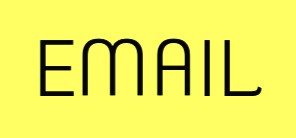
It could be said that ANY belief involves a "leap of faith."
I believe that Donald Trump is the sitting President of the United States. But I haven't "verified" this. It is possible that it's all a hoax, an elaborate trick that somebody is playing on me, like one of those stage magic tricks that involves huge cages and leopards.
Right now, I believe that Donald Trump is in the Oval Office.
You could say that I am exercising "faith" when I start my car and pull out into traffic. I am assuming that the other drivers are not homicidal psychopaths who want to swerve over into my lane and hit me head-on. I have to make those assumptions, or I can't drive.
We can't function, we can't operate in the real world, unless we make certain assumptions. Lots of assumptions.
I once worked with a woman who said that when you spell "assume," you "make an ass out of you and an ass out of me." I pointed out to her that she makes assumptions all the time. She had just flown in from Miami; I asked her if she interviewed the pilot (and checked his pilot's license) before the plane took off. No, she didn't.
I asked her if that made her an "ass."
I assume that my wife is not a Russian undercover agent who is programmed to kill me when she hears the word "australopithecus." Am I 100% sure of this? Is it possible that she could be a Russian agent? Yes. But I base my decisions on likelihoods, not certainties. 99.999999% is good enough for me.
I am limited by my imperfect abilities to observe. My vision is imperfect. My reasoning is sometimes flawed. I have been deceived before (and will probably be deceived again). People (who aren't good at communicating) will say things that I misinterpret.
The best I can do is apply my less-than-perfect critical functions, my "bullshit detector," to everything. Even the things I'm told I "shouldn't" question, such as god and religion.
All that to say: I don't really KNOW anything with 100% certainty (and neither do you).
I can do a magic trick that will fool the hell out of you (I once did a card trick for a beautiful girl that was so good, she broke up with me and kicked me out of her apartment. I used her deck of cards. I was very good at sleight-of-hand).
You ask me if God exists. I will tell you (after we find out what you mean by "God") that I don't have any reason to believe in the existence of any god. Could he (it) exist? Yes. Monkeys could fly out of my butt tomorrow morning. But the likelihood that the god of the Bible exists? Very close to zero.
For some people, the fact that "there are things we don't know" is enough reason to believe in a god. That's just not good enough for me.
|
Objective truth is something that doesn't change.
You might not be able to know the truth. The truth could be right in front of you but you might be unable to see it. The truth is not always the way you want things to be. It is not always the way things appear. It probably isn't the way things should be. Truth is the way things really are. I always use the example of the big tree out in my front yard. It's there. No matter what I think or what I want, the tree is there. At night, when it's very dark, I can't see the tree. I can't hear it. But if I go running through my yard in the black of night, I'll run into that tree, and bust my nose. And that's the problem when somebody doesn't know the truth or doesn't understand the truth or doesn't acknowledge reality: Reality is there, whether you like it or not. Reality always wins. Your success in life, and your survival, are directly proportional to how much you can perceive reality and accept it. |

|

|